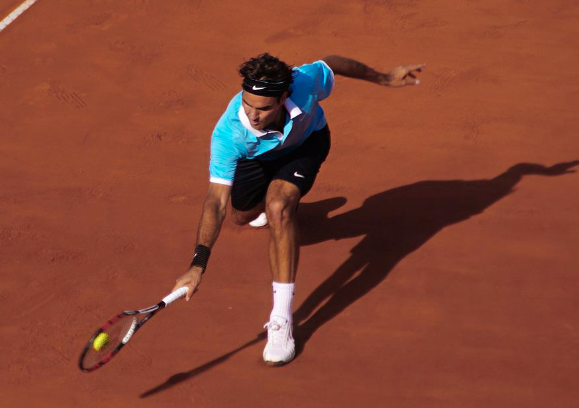As Robin Söderling’s return of serve crashed into the net, Roger Federer collapsed to his knees, burnt orange clay staining his clothes and legs.
This was what it had all been leading up to – his maiden French Open title which completed his career Grand Slam. At that point, just five men had won every Grand Slam tournament in tennis, and Federer became the sixth.
How Roger Federer Magically Won The 2009 French Open Title

This was the fourth consecutive French Open final Federer had played in, but he had lost the previous three, all at the hands of the irrepressible ‘King of Clay’ Rafael Nadal, who incidentally is the favourite in the French Open odds 2022. Back then, Nadal had fallen in the fourth round at the hands of Söderling, and suddenly the door opened for Federer to finally get his hands on the Coupe des Mousquetaires.
“It was probably my greatest victory, I was under big pressure,”the Swiss reflected afterwards. “I did it and it’s phenomenal. It was great to be on the podium as a winner for a change. Andre [Agassi] said it was my destiny to win this and that I deserved it.”
While there was glory at the end of the tournament for Federer, his route to the final had been anything but straight forward.
His first-round match against Alberto Martín went by without incident, as Federer recorded a straight-sets win, but the second round proved more of a challenge. Argentine player José ‘Chucho’ Acasuso pushed him hard, with Federer ultimately coming out on top in four sets.
Federer then survived a mini-scare in the third round, beating 32nd seed Paul-Henri Mathieu in four sets after the Frenchman had taken the first, with the Swiss feeling the effects of his tussle with Acasuso.
The difficult matches kept on coming, and it looked for all the world as though Federer was about to bow out of Roland-Garros in the fourth round.
Two sets down to Tommy Haas, he needed all his powers of recovery to get back into the match. Federer found the reserves of energy from somewhere, winning three sets on the spin to turn the match on its head and reach the quarter-finals.
There he met home favourite Gaël Monfils, but the French crowd was silenced as Federer ran out a comfortable straight-sets winner. That set up a semi-final meeting against Juan Martín del Potro, who was an emerging talent at the time and would go on to win the US Open that same year.
The Argentine put up a heroic performance, at one point leading two sets to one and looking good value for the final. But once again, Federer had other ideas, bringing his A-game to the final two sets to claim his place in the Roland-Garros showpiece once again.
In many ways, that titanic tussle with Del Potro had felt like the final. Söderling had also come through a five-set epic to reach the final, but the Swede had no prior experience of a Grand Slam final, and it’s fair to say he was feeling the nerves.
Federer made light work of him on Court Philippe Chatrier, holding the trophy aloft and completing his career’s ambition.



